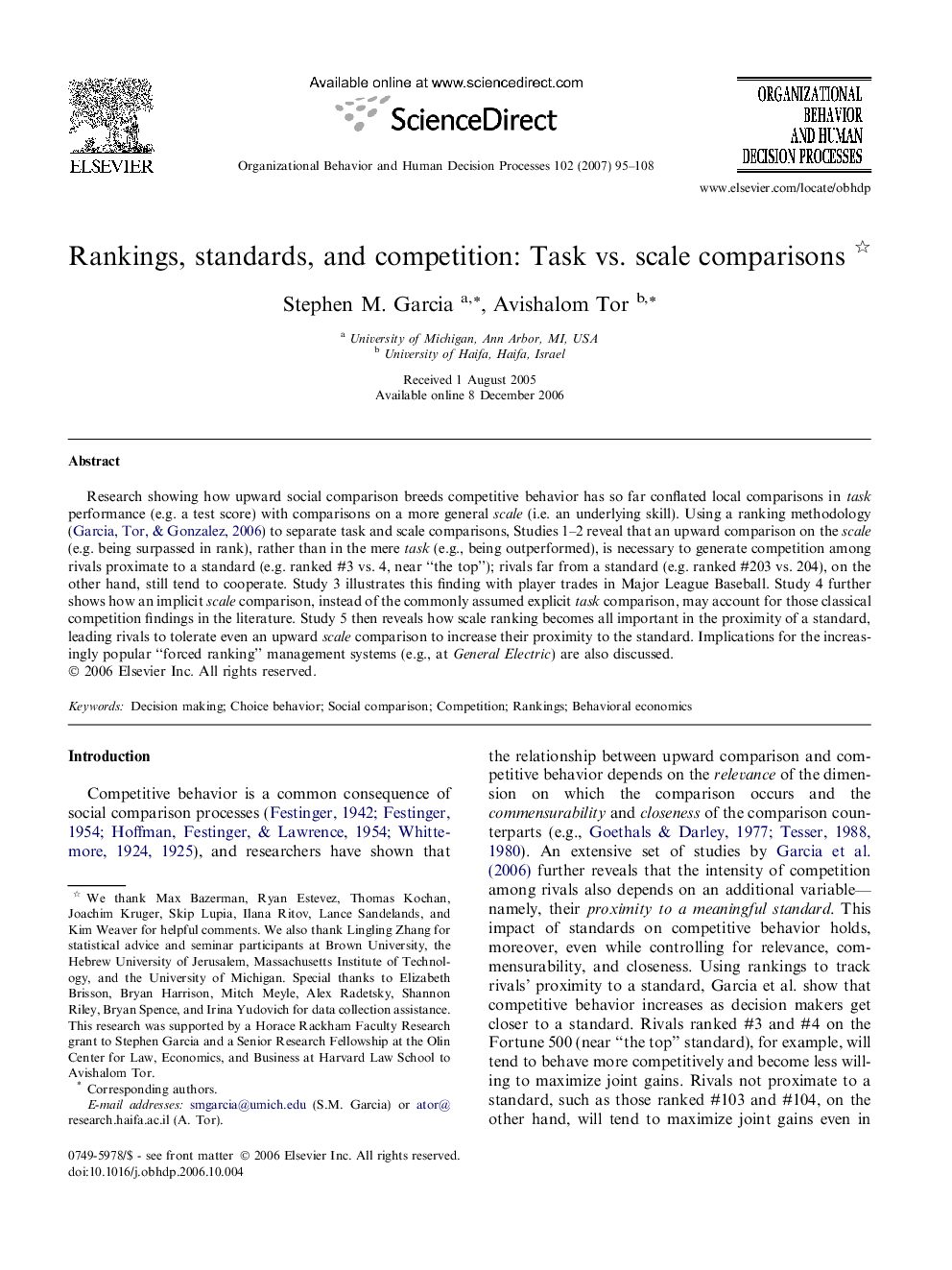| Article ID | Journal | Published Year | Pages | File Type |
|---|---|---|---|---|
| 889045 | Organizational Behavior and Human Decision Processes | 2007 | 14 Pages |
Research showing how upward social comparison breeds competitive behavior has so far conflated local comparisons in task performance (e.g. a test score) with comparisons on a more general scale (i.e. an underlying skill). Using a ranking methodology ( Garcia, Tor, & Gonzalez, 2006) to separate task and scale comparisons, Studies 1–2 reveal that an upward comparison on the scale (e.g. being surpassed in rank), rather than in the mere task (e.g., being outperformed), is necessary to generate competition among rivals proximate to a standard (e.g. ranked #3 vs. 4, near “the top”); rivals far from a standard (e.g. ranked #203 vs. 204), on the other hand, still tend to cooperate. Study 3 illustrates this finding with player trades in Major League Baseball. Study 4 further shows how an implicit scale comparison, instead of the commonly assumed explicit task comparison, may account for those classical competition findings in the literature. Study 5 then reveals how scale ranking becomes all important in the proximity of a standard, leading rivals to tolerate even an upward scale comparison to increase their proximity to the standard. Implications for the increasingly popular “forced ranking” management systems (e.g., at General Electric) are also discussed.
